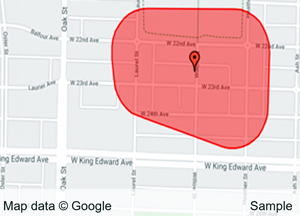The Spark of Disruption
This past weekend, a significant BC Hydro outage left thousands of residents in British Columbia without power, igniting conversations about the reliability of our aging electrical infrastructure. In an age where we are becoming increasingly dependent on electricity, the briefest disconnection has extensive ripple effects on daily life.
The Scale of the Outage
Reports come in that during a peak evening hour, around 45,000 homes across Metro Vancouver faced blackouts after a tree fell on a transmission line in Coquitlam. For many, the evening was spent in darkness, struggling to manage without basic amenities. Local businesses reported heavy losses as they were forced to close early, and families resorted to candlelit dinners in an age where technology reigns supreme.
Public Reaction and Sentiment
Social media was inundated with comments from frustrated citizens. A local resident tweeted, “It’s 2023; this shouldn’t happen. How long until they fix the infrastructure? I shouldn’t have to stock up on candles!” The sentiment encapsulates a growing frustration regarding the government and utility companies’ inability to invest in critical infrastructure—and the public’s increasing demand for transparency in power management.
Underlying Issues and Future Implications
The origins of this incident raise valid concerns about BC Hydro’s commitment to managing the risks associated with severe weather events, which are anticipated to increase due to climate change. Industry professionals have long warned that aging infrastructure is failing to keep pace with the demands of a modern, electrified society. The recent outage serves as a dire reminder that while we chase technological progress, our foundational systems require just as much attention.
Local environmental activist and founder of Green Lives, Sarah Nguyen, articulated this urgency when she stated, “We need to prioritize our public utilities and invest in future-proofing our electrical grid. Outages like this are not just inconveniences; they can pose real safety risks, especially for vulnerable populations who rely on power for medical devices.” Nguyen’s assertion underscores the very real implications of these outages on public health and safety.
Looking Forward
As discussions arise in city councils and provincial legislatures regarding budgets and infrastructure projects, it’s imperative that we not only respond to individual outages but adopt a proactive approach to energy distribution. Studies from the last decade show that nearly 60% of Canadians believe that reliable access to electricity should be a government priority, especially with the rise of renewable energy sources. Will BC Hydro heed these changing tides and reconsider its resource allocation toward infrastructure modernization?
In a world where energy consumption is at an all-time high and the unpredictability of climate events looms, the stakes have never been higher. The BC Hydro outage this weekend was more than just a blackout; it was a wake-up call. As residents return to their normal routines, we must demand a cultural shift in how we prioritize infrastructure investment in the face of evolving challenges. The time for change is now, and the resilience of our power systems depends on it.

